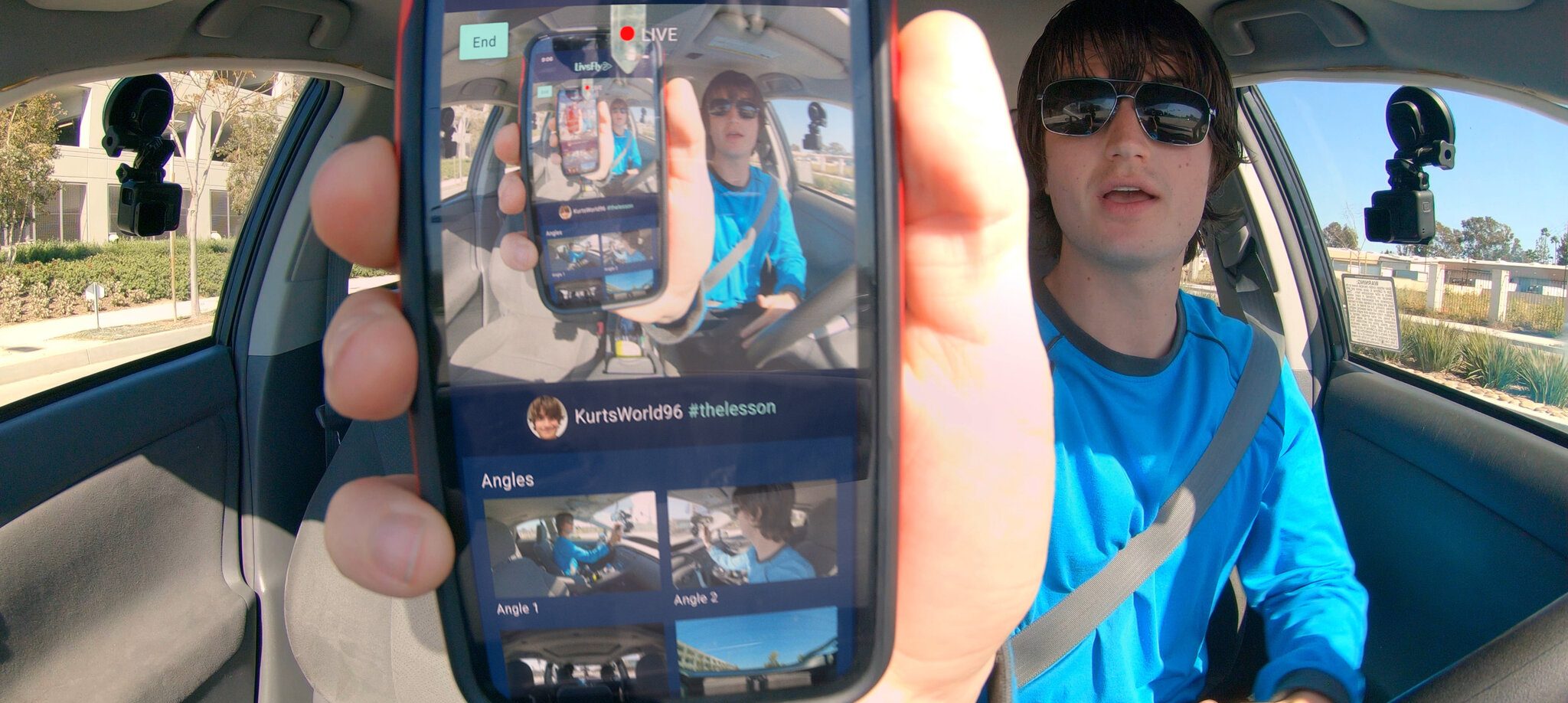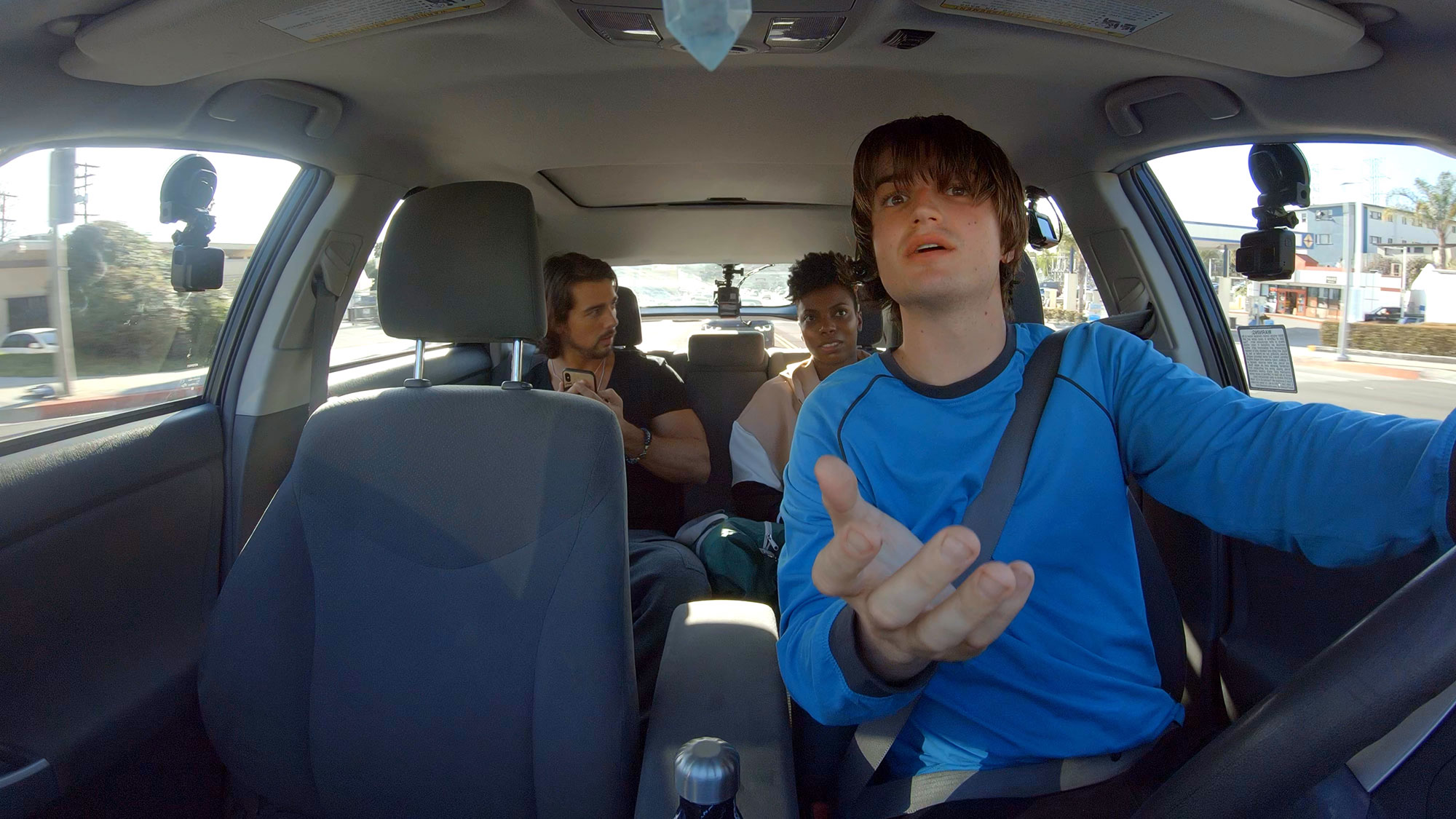Directed by Eugene Kotlyarenko, ‘Spree’ is a satirical horror film that tells the tale of Kurt Kunkle, a rideshare driver for an app named Spree. Kurt is an obsessive and aspiring social media influencer who starts killing his passengers with poisoned bottles of water. He live streams his murders in an attempt to gain more viewers on his channel, and subsequently, his criminal activities get an impetus. An unhinged Kurt starts to believe he is a “hero” and that he is responsible for “eliminating” people that are “unworthy.” His nefarious activities keep exemplifying themselves until he gets fixated on Jessie Adams, a famous stand-up comedian, and sets out on another homicide.
‘Stranger Things’ famed Joe Keery received a lot of accolades for his outstanding performance as Kurt Kunkle. He was appreciated for being particularly effective in portraying Kurt’s duality, oscillating between wide-eyed innocence and cold-blooded calculation. Sasheer Zamata, known for her tenure at SNL, plays the character of Jessie Adams with the utmost commitment and realism. The contemporarily suitable 2020 film makes one ponder the dark sides of social media and is so believable that it makes us question if the movie is based on some truth. Let us see if we can find some answers!
Real Uber Killer Inspires ‘Spree’ Movie Plot
‘Spree’ is not based on a true story. However, the writers of the movie, Eugene Kotlyarenko and Gene McHugh, were inspired by the real-life case of an Uber driver who went on a killing spree in 2016. Though Kotlyarenko never disclosed details of the true case that served as their inspiration, it is speculated that the case was that of Jason Dalton. The latter was a rideshare driver who used the app to pick up his victims in Kalamazoo, Michigan. He killed six people and injured two others by shooting them, often in front of witnesses. Dalton was eventually arrested and pleaded guilty to six counts of murder and other charges against him. The man was convicted in February 2019 and sentenced to life imprisonment.

At the Sundance 2020 Film Festival, Kotlyarenko shed some light on the conception of the story. He said, “My co-writer, Gene McKugh, said, ‘We should [take] this horrible thing that happened and use it.’” The director later felt, “‘What if he’s thirsty for social media attention? What if it’s not like a documentation but like a livestream?’” It set the stage for the basic premise, which eventually became “way more about the way we’re all kind of desperate and shaping our identity and our self-worth and value through social media, through attention… And then it became bigger because when you talk about murder and attention, that’s like an epidemic in our country, so linking all of those things together felt very necessary.”
The movie likely does not take up anecdotes from the real-life case, but it delivers on examining the threat of social media in a thorough manner. It runs on similar themes to the case and exposes the drive for fame in an age where getting famous seems very accessible and easy. Since the promise of popularity dangles right in front of our faces all the time, a maniacal personality would probably surpass any legal or social threshold to nab it. The imminence of such a danger is vividly discussed in the film.
The film is made in a gonzo-satirical style, which means that the writer is the protagonist of the story. This leads to a highly subjective, personalized, but funny perspective of the events. By making use of Kurt’s car dashcam as a major point of view during filming, they managed to elevate the atmospheric tension, making the audience feel like they are a part of a claustrophobic nightmare. The first-person narrative device is used to examine the dark side of social media culture in the modern world. It exposes the dangers of amplifying the voices of people who are deeply troubled and unstable.
Social media allowed Kurt to create a fake reality for himself and build false intimacy with his followers. Kurt stands as a representative of many people who do not get the help they need because their actions are validated by their followers, who, in turn, cannot differentiate between the reality and absurdity of social media. The movie is very dark and disturbing to watch at times, but it is also timely as it was dropped in the middle of the COVID-19 pandemic, which was the point at which social media and its use had gone into a flurry.
The 2020 film serves as a cautionary tale and continues to gain relevance as time passes. The nexus of the present world is tethered to the use of social media, and such films do the important task of reminding the users that the other side of the coin is capable of overwhelming damage. Taking the aforementioned pints into consideration, we reiterate that even though ‘Spree’ does not tell the exact story of a real-life incident, it is a story that can exist in our world and hits too close to home.
Read More: Best Internet and Social Media Movies


You must be logged in to post a comment.